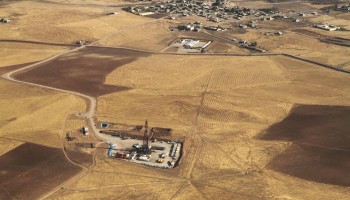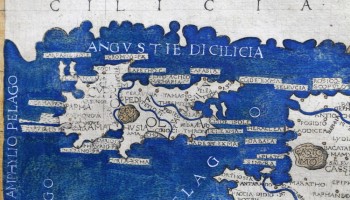Deripaska’s lawyers wanted the trial, which would settle a dispute over 20 percent of RusAl, Russia’s largest industrial group, held in Russia. But Britain’s court of appeal ruled last month that Cherney had the right to sue Deripaska in Britain, after Cherney’s lawyers argued that a Russian trial would endanger both Cherney’s freedom and possibly his life.
“[Judge Christopher Clarke] found that Mr. Cherney had a well founded fear for his own safety and that he would be more at risk in Russia than England,” the judgment read, adding that Deripaska might use his influence on the Russian authorities to bring “trumped up” charges against Cherney.
Cherney has accused Deripaska of not honoring a March 2001 deal that decreed Cherney would sell his aluminum company to Deripaska for $250 million and a 20 percent stake in RusAl. Deripaska said the agreement, made in a London hotel, involved only the $250 million, which he has paid.
Foe Pleased with Outcome
Cherney, who has lived in Israel since 1991, was pleased with the outcome. “I hope that Mr. Deripaska will now focus on the real issues between us and I look forward to moving towards an early trial of them in London,” he said in a statement. A Deripaska spokesman told the Wall Street Journal said the decision was disappointing, and that the allegations in Cherney’s suit were “vexatious.”
The Cherney dispute isn’t the first time that a Deripaska foe has tried to bring him to trial in the West. In 2000, three small Russian metal trading companies filed a $3 billion civil racketeering suit against RusAl in a US federal court, claiming that RusAl had illegally seized a Siberian aluminum plant, and that the company’s owners had committed murder, extortion and mail and wire fraud. The court threw out the suit three years later, saying the US wasn’t the right forum for the dispute. The plaintiffs later filed charges in the British Virgin Islands; Deripaska paid them unspecified millions in an out-of-court settlement.
No trial date has been set, and there is the possibility that the dispute could be settled out of court. Deripaska, however, has already had to reveal details about his 1990s business dealings in pre-trial motions. A trial would undoubtedly bring more of those to light and possibly further tarnish his image, which has been sullied by his takeover of the murderous 1990s Russian aluminum industry, and his more recent inability to get a US visa. The State Department believes he may have connections to organized criminal groups. Deripaska has denied any links to organized crime.
-- Beth Kampschror





